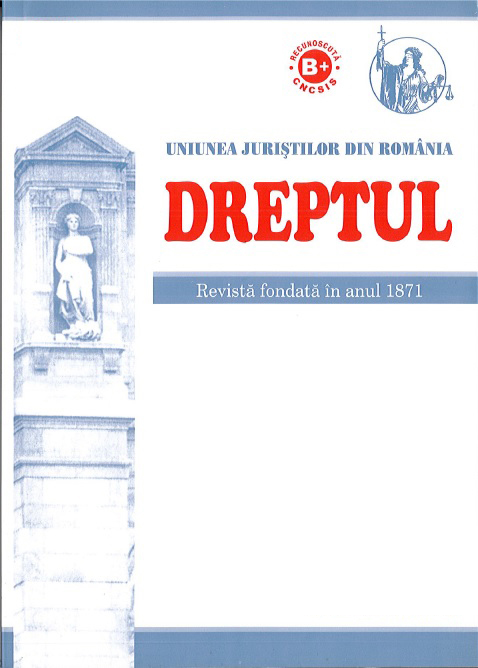The present study begins with the analysis of the texts of Article 630 of the Civil Code, where
there can be found the legal relevant provisions, followed by some considerations regarding the
origin of the civil liability for the abnormal neighbourhood inconveniences under the influence of the
old Civil Code. Furthermore, the author appreciates that, at present, from the economy of the texts of
Article 630 of the Civil Code, it results that the civil liability in question is of two types: reparative and
preventive. Further on the scope of this liability is circumscribed. For this purpose, on the one hand, it
is established the sphere of the persons between whom it can be engaged, and, on the other hand,
there are determined and qualified the neighbourhood inconveniences that can generate it.
An important and ample space is conferred to the analysis of the conditions that must be met
for the existence of this liability, as well as to the detection of its theoretical foundation. Thus, in the
reparative variant, the existence and the engagement of civil liability requires to cumulatively meet
three conditions; two of them are the general conditions of any reparative civil liability – damage and
relation of causality – and a special or particular one, which is the abnormal neighbourhood
inconvenience caused to the victim, directly or indirectly, personally or by another, by the owner or
owners of one of the neighbouring buildings. Therefore, it can be easily established that the fault or
guilt, proven or presumed, of the neighbouring owner or of other persons, who exercise the attributes
of the property right, over or beyond its normal limits, is not a necessary condition of engaging this
reparative civil liability. Consequently, the problem of the theoretical foundation of liability is also
solved legislatively, in the sense that we are in the presence of an objective civil liability, without the
guilt of the liable person or of other persons, according to Article 630 (1) of the Civil Code.
RĂSPUNDEREA CIVILĂ PENTRU INCONVENIENTELE ANORMALE DE VECINĂTATE
15.00lei


